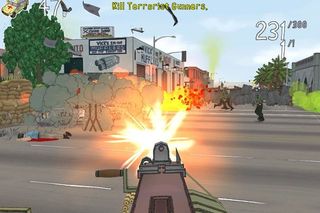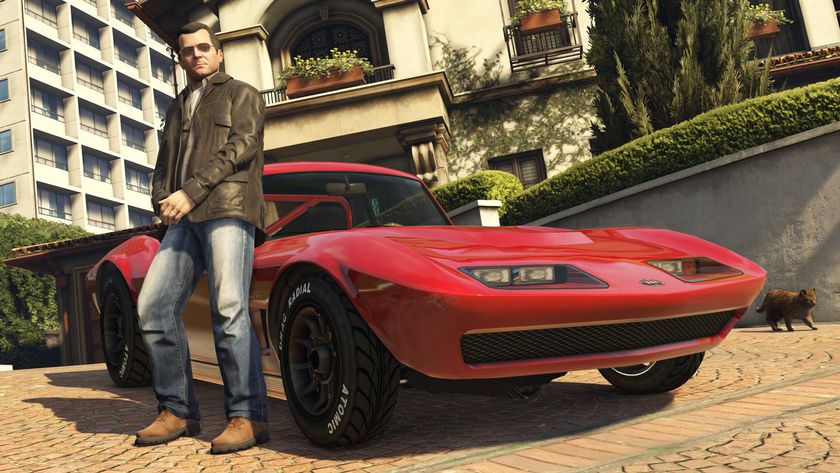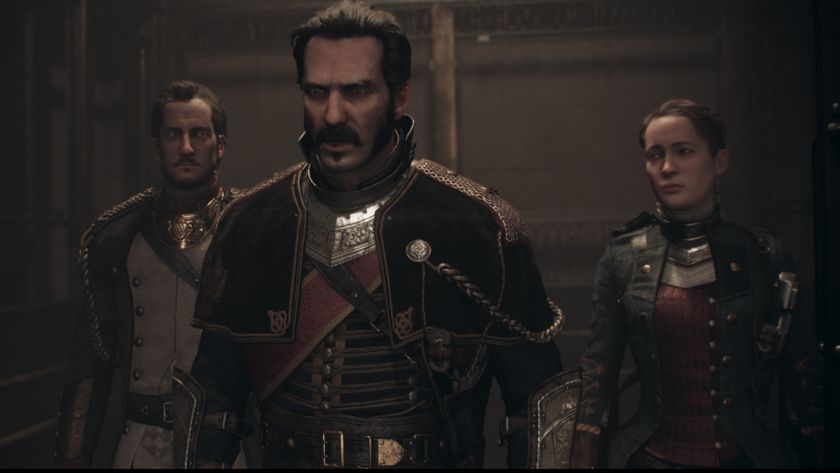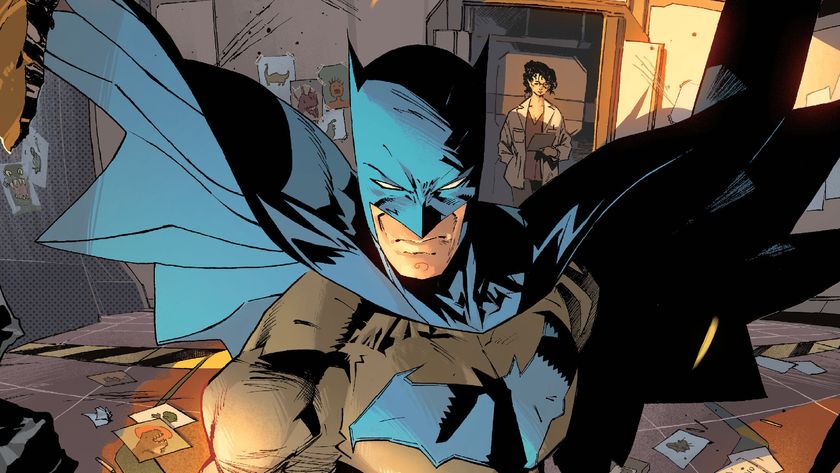American McGee: The GamesRadar Interview (Part 2)
How does Bad Day LA's creator handle his legacy as a gaming god? He ignores it
(You know, this makes more sense if you've readPart 1first.)
GR: What's your favorite aspect of Bad Day LA?
AM: I like the fact that this is a game about helping and caring. In a world where other video games are teaching our children how to rape prostitutes, make lampshades from human remains and shoot innocent water buffalos with RPGs, Bad Day LA serves up a "Love thy neighbor... and set on him fire with a Molotov cocktail if he's turned into a brain-eating zombie" type message that Jesus himself would approve of. That, and all the "taco bender" jokes.
GR: Most of the games you've worked on since your days at id have not been first-person shooters. Any particular reason why?
AM: I like the 3rd-person perspective because it offers a more casual gameplay interface. My goal isn't to make hardcore games, but ones that can be played by anyone.

GR: Yet you started as a twitch-shooter level designer. How did this expansion of purpose come about?
Sign up to the 12DOVE Newsletter
Weekly digests, tales from the communities you love, and more
AM: It feels like the industry has stagnated a bit since the twitch-shooter came out. Publishers break games into easily definable genres. Over the years those slots have been refined to the point where it's very rare to see the birth of a new genre of game.I was at EA/Maxis while The Sims was being developed and sat in on numerous meetings where various executives and marketing people tried to kill the project just because they couldn't figure out where to put it on a retail shelf or how to market it. These sorts of meetings happen all over the industry, all the time. The Sims is now the best-selling PC game of all time. It appeals to non-gamers and gamers alike. Seems odd to me that we have to wait for Will Wright to make another game before we see something that innovative happen again.
My point is that, unless we try to push outside the publisher defined boundaries of what defines "a game," then we're only going to innovate by small degrees. As a result our potential consumer base will never grow beyond the hardcore. Publishers seem to be happy with this model, but I get the sense that a lot of developers and gamers are tired of it.
There are hundreds of millions of casual gamers out there. There are tens of millions of hardcore gamers. I think until we find a way to bring these groups together via new ways of thinking about games, we're missing a larger picture.
GR: Have there been games that you've passed up making along the way because of that aim?
AM: I don't want to get involved with "yet another shooter," if that's what you're asking. When I look at a game I want to see that it innovates in an area other than graphics, size, or cost. I'm no Will Wright - in fact, I think his glasses are probably smarter than me - so when I talk about innovation, I'm talking about narrative content, characters, and interesting delivery/production methods.
Most Popular








